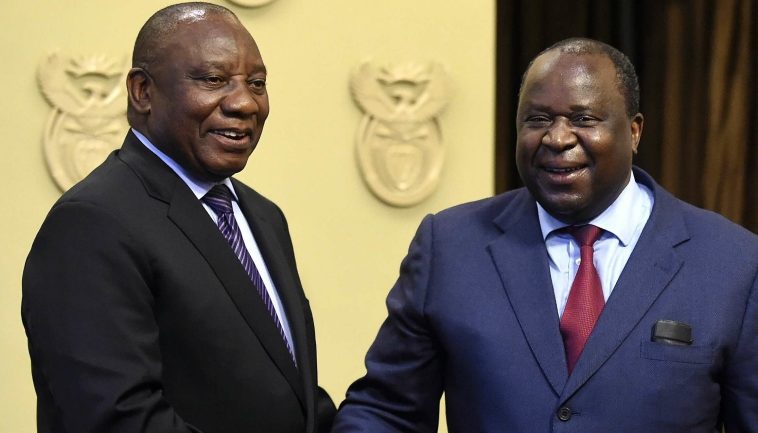Despite the realism, and tougher tone on Eskom, the pre-election budget lacks bite for deficit hawks.
The maiden budget speech from South Africa’s Finance Minister Tito Mboweni was not enough to convince analysts that the risk of a future downgrade to sub-investment status by Moody’s has been averted.
- Mboweni’s budget paints an economy in a “poor state” with “little detail on the difficult path to recovery”, Deloitte Africa wrote.
- Deloitte described the 1.5% growth outlook for 2019, revised down from the previous estimate of 1.7%, as “disappointing”.
- “The budget confirms that South Africa’s budget black hole continues to widen and that the government lacks a realistic plan to close it,” said Ben Payton, Head of Africa at Verisk Maplecroft in London.
According to Payton, an imminent relegation to junk is “not inevitable”, since the political climate after the election will make it easier for President Cyril Ramaphosa to pursue market-friendly reforms. “But Moody’s cannot ignore the precarious fiscal situation indefinitely, leaving South Africa at severe risk of a downgrade.”
- Following the budget speech, PwC South Africa wrote that it sees “a high probability” of Moody’s downgrading South Africa to non-investment grade this year. Rating agencies will be unhappy with the widening of the fiscal deficit, higher peak public debt, and increased exposure to state-owned enterprises, PwC economists Lullu Krugel and Christie Viljoen wrote.
Standard & Poor’s and Fitch have both already downgraded South Africa to junk. Were Moody’s to follow suit, the country would fall out of gauges such as Citigroup’s World Government Bond index.
- This would trigger large-scale selling, raising the cost of debt and putting pressure on the exchange rate.
State-owned drains: the government intends to use Eskom as a “case study for future discussions with credit rating agencies,” according to Vikrant Bhalerao, a London-based management consultant.
Nonso Obikili, a Nigeria-based policy associate at Economic Research Southern Africa, argues that “major drains like Eskom” mean that it will take time turn public finances around. These drains “can’t just be gotten rid of in one or two budget cycles.”
- Mboweni took aim at the state-owned entreprises haemorraging cash, saying: “Emotional attachment in the post-Soviet era is meaningless”.
Bailout and privatisation route: Payton at Verisk Maplecroft argues that the support package for Eskom is “a short-term bailout in all but name. But Mboweni’s sticking plaster will not heal Eskom’s gaping wounds.”
- In refusing to take on any of the company’s debt, the government is effectively acknowledging that Eskom’s condition is “terminal”
- Some form of Eskom privatisation will become harder and harder to avoid.
Public Spending
Obikili at Economic Research Southern Africa was encouraged by the acknowledgement that public sector wages need to fall.
- The budget suggests a serious plan to tackle public pay, “although implementation will be another story,” Obikili said, adding that the budget’s growth projections seem overly optimistic.
- PwC is forecasting a budget deficit of 4.7% for 2019-20.
- Debt service costs will remain the fastest-growing spending item, PwC notes. Debt service will significantly constrain the government’s ability to achieve growth and investment, Delia Ndlovu, Deloitte managing director for Africa tax and legal, wrote after the speech.
Payton notes that the projected deficit for the current financial year has grown by 8bn rand ($575m) since the previous forecast in October, and that the government is spending 14% more than it is earning.
- Though it was never going to be possible for Mboweni to announce significant spending cuts in the run-up to the May election.
What to watch
So will the deficit be tackled post election? Payton suggests not, pointing to fierce opposition from trade unions and other key powerbrokers.
Understand Africa’s tomorrow… today
We believe that Africa is poorly represented, and badly under-estimated. Beyond the vast opportunity manifest in African markets, we highlight people who make a difference; leaders turning the tide, youth driving change, and an indefatigable business community. That is what we believe will change the continent, and that is what we report on. With hard-hitting investigations, innovative analysis and deep dives into countries and sectors, The Africa Report delivers the insight you need.
View subscription options

